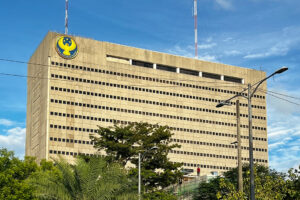




January Economic Update: Growth slows, prices rise
 DOWNLOAD
DOWNLOAD

Inflation Update: Up, up, and away?
 DOWNLOAD
DOWNLOAD

Quarterly Economic Growth Release: Growth takes on a slower pace
 DOWNLOAD
DOWNLOAD


Loans used as reserves hit PHP 8 billion

Small banks lent out PHP 8.01 billion to micro, small, and medium enterprises (MSMEs) and eligible large enterprises (LEs) as part of their alternative compliance with reserve requirements, the Bangko Sentral ng Pilipinas (BSP) said.
“For the reserve week ending Oct. 19, TBs (thrift banks) and RCBs (rural and cooperative banks) allocated an aggregate of PHP 8 billion and PHP 6.5 million loans to MSMEs and LEs, respectively, for compliance with the reserve requirements,” it said in a report on recent trends in the Philippine financial system.
The central bank said these accounted for 0.6% and 0.0005% of the total required reserves for the said week.
The BSP allowed MSMEs loans to be counted as part of banks’ reserve requirements in a bid to boost lending to the sector, which was hit severely by the coronavirus pandemic.
According to the BSP, banks’ availment of the relief measure declined in October this year due to the expiration of its effectivity for universal and commercial banks on June 30.
Smaller lenders can still count their loans to MSMEs and LEs as alternative compliance with reserve requirements until they are fully paid, but not later than Dec. 31, 2025.
Rizal Commercial Banking Corp. Chief Economist Michael L. Ricafort said MSME and LE loans counted as reserve requirements would allow smaller banks to earn more from their loanable funds.
“Given the extension of these regulatory relief requirements for smaller banks, so might as well maximize the returns through these additional MSME and LE loans used as alternative compliance by including the calculation of required reserves while still allowed,” Mr. Ricafort said.
In 2022, banks lent PHP 493.5 billion to MSMEs as alternative compliance with reserve requirements. This was 6.6% higher than the PHP 463.1 billion a year prior.
By banking group, universal and commercial banks extended PHP 390.9 billion in loans to MSMEs, while rural and cooperative banks lent PHP 52.7 billion.
In June, the BSP cut the reserve requirement ratios of big banks by 250 basis points (bps) to 9.5%, by 200 bps to 6% for digital banks, and by 100 bps for thrift banks, and rural and cooperative banks to 2% and 1%, respectively. — Keisha B. Ta-asan
This article originally appeared on bworldonline.com





 By BusinessWorld
By BusinessWorld